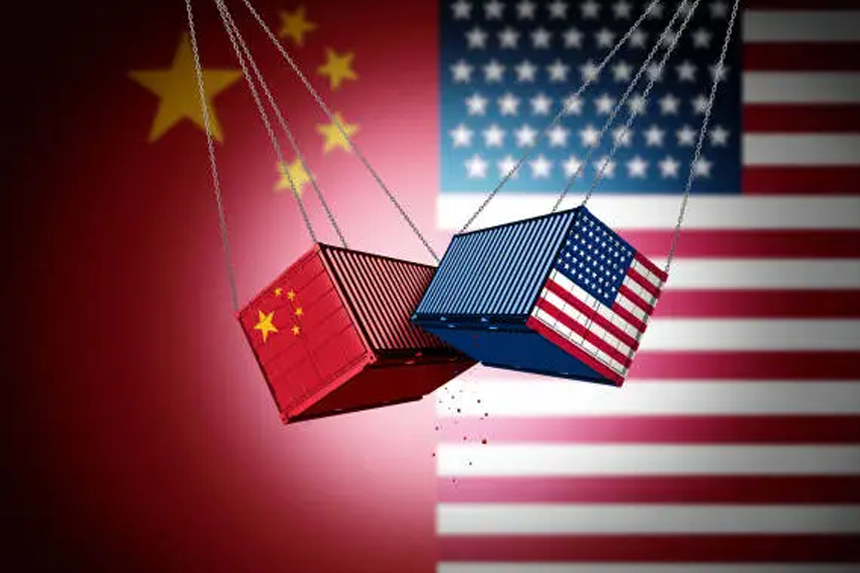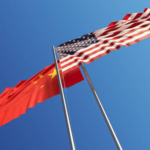The two biggest economies in the world, the US and China, have entered a new phase of conflict. China has launched its own actions aiming at particular American products in response to President Donald Trump’s imposition of a blanket 10% tariff on all Chinese imports. This rising tit-for–tat is only another chapter in the continuous trade conflict boiling underfoot since 2018. Still, this fresh development is expected to have different effects on world trade and both nations.
- What Countermeasures China Has Against the US Tariffs in the Trade War?
- How Will These Tariffs Affect Trade War China's Economy?
- How Does the Trade War Affect US Exports and Consumerism?
- In the trade war between US-China, are these actions more symbolic than significant?
- What Non-Tariff Policies China Is Using During the Trade War?
- How Are Export Controls of China Affecting World Trade?
- To sum up: Will the US-China Trade War produce a deal?
What Countermeasures China Has Against the US Tariffs in the Trade War?
In reaction to the tariffs imposed by the United States, China has declared a sequence of counterattacks. These comprise a 15% tariff on crude oil, import duties of 10% on US coal and liquefied natural gas (LNG). These fresh levies are less competitive for Chinese consumers since they seek to slow down the flood of US fossil fuels into the Chinese market. Following Trump’s earlier this year decision to impose tariffs on Chinese imports, this step marks yet another turn in the US-China Trade War.
How Will These Tariffs Affect Trade War China's Economy?
With US imports just 1.7% of its total crude oil imports in 2023, China’s fossil fuel commerce is meager. China, the top coal importer worldwide, is not especially dependent on the US for this resource since most of its coal comes from nations like Australia, Indonesia, and Russia. China has been almost doubling its 2018 amounts of LNG imports from the US. Still, a tiny fraction of China’s total energy use is US fossil fuels imported overall.
Economists contend that given China’s easy access to substitute suppliers—especially from Russia—these retaliatory taxes will have little effect on the Chinese economy. One economist observed, “China could easily source more supplies from Russia, where it has already been buying oil at a discount as the Kremlin seeks to fund its war effort.”
How Does the Trade War Affect US Exports and Consumerism?
Conversely, the US will probably feel less pinch from these policies. The US boasts the highest LNG export volume worldwide and a wide clientele, especially in Europe. Most of the US LNG shipments will probably be absorbed by countries like the United Kingdom and other EU members, therefore lessening the effect of the taxes on US companies.
China has also levies a 10% duty on several big cars, pick-up trucks, and agricultural gear. But most of China’s automobile imports come from Europe and Japan; US pick-up truck exports to China are already limited. Thus, these tariffs might have only little impact on Chinese consumer pricing. Likewise, given China’s growing local farm machinery industry to improve food security and lower dependence on imports, the effect of the agricultural machinery tariff is probably minor.
In the trade war between US-China, are these actions more symbolic than significant?
Though these tariffs have a targeted character, China’s actions have overall rather little effect. Economists estimate that just around 12% of China’s overall imports from the US come from these targeted products, with their combined worth of $20 billion yearly. By contrast, the US is aiming for Chinese goods valued over $450 billion. This indicates that the economic damage is unlikely to be significant even when China is responding with moderate tactics.
One trade analyst stated, “These policies have obviously been tuned to convey a message to the US without seriously hurting China’s own economy.” Without hurting China’s own businesses unnecessarily, the penalties seem to be meant to convey her discontent with US trade policies.
What Non-Tariff Policies China Is Using During the Trade War?
Apart from tariffs, China has started applying non-tariff policies to handle the rising trade conflicts. An anti-monopoly probe of US tech behemoth Google is one prominent step. Since 2010, Google’s search operations have been restricted in China; although the firm still has apps and games to show presence there, just roughly 1% of its worldwide revenues come from China. Cutting connections with China would not thus have a major financial effect on the business.
China also included PVH, the American business behind Tommy Hilfiger and Calvin Klein, on its “unreliable entity” list. This action denotes the possibility of penalties and visa restrictions for foreign workers as well as sanctions against these businesses. Furthermore, authorities could look at PVH’s activities in China, therefore impeding the company’s ability to operate there.
“The Chinese government is imposing sanctions on businesses it views as opposing its interests using its own version of the US ‘entity list,” claimed one analyst. “This is in line with the general de-coupling of US and China’s economies trend.”
How Are Export Controls of China Affecting World Trade?
In retaliation, China has also put export restrictions on 25 rare metals—all crucial for different high-tech sectors, including electronics and military hardware. China generates practically 90% of the refined output of these metals worldwide, hence these export limitations could cause some disturbance. One such metal on the limited list is Tungsten, a vital component for the aircraft sector.
These new policies have not targeted the metals China buys from the US, however, which are vital for high-end chips, semiconductor machines, pharmaceuticals, and aerospace equipment. This implies that China is aware of the possible consequences for its own sectors even while it is trying to restrict the exports of vital resources.
The US is getting ready with its own reply. Indicating that the US has a plan to offset China’s hegemony in this industry, President Trump has proposed that Ukraine may assist secure the supply of rare earth metals in return for support in its war with Russia.
To sum up: Will the US-China Trade War produce a deal?
There are still chances for discussion between the US and China even if their trade conflict keeps getting more intense. Although President Trump has stated plans to meet with Chinese President Xi Jinping in order to find a solution, it is obvious that the situation will stay heated given China is moving with tariffs and non-tariff policies. Whether the US and China can negotiate a settlement or if they keep raising their trade war will determine the long-term effect on the world economy.
The trade issue between the US and China is far from over even if China’s retaliatory actions have a quite limited immediate influence.








